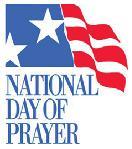Yesterday a federal district judge ruled the “National Day of Prayer” unconstitutional. But observing such a commemorative occasion involved no compulsion, discrimination or penalty on or against any observer of any religious doctrine. So what’s the rub?
Lots of Americans realize the First Amendment protects freedom of religion. It actually has two parts. The 1st guarantees the “free exercise” of religious beliefs. The 2nd prohibits any “establishment of religion” by the government. It’s the second clause — known unoriginally as the “establishment clause” — that is in play when debating invocations at public events, schools and the like.
“A determination that the government may not endorse a religious message is not a determination that the message itself is harmful, unimportant, or undeserving of dissemination,” she said. “Rather it is part of the effort to carry out the Founders’ plan of preserving religious liberty to the fullest extent possible in a pluralistic society.”
Personally I think there’s a difference between making all elementary school students recite the Lord’s Prayer and ordaining a national day, really just an honorific, to recognize the role of prayer in American society. The former was declared unconstitutional in the early 1960s and few citizens today would object to that significant step toward religious tolerance and diversity. But as a constitutional matter, it is simply not the case that the US Constitution’s protections for religious freedom mean the government can support or promote either specific denominations (e.g., Anglicans over Baptists) or movements (e.g., Christianity over all the rest). At the margin, things like a National Prayer Day have little relevance except to those who stand on principle and refuse to compromise, which in US constitutional jurisprudence has always been a discrete and insular minority.

